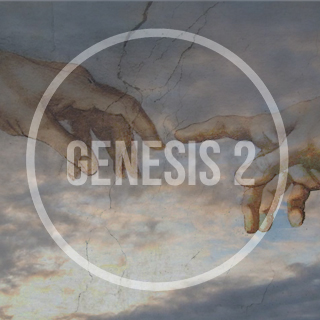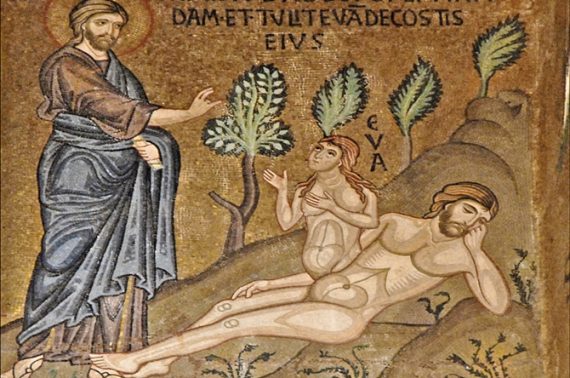 This is the summary episode of Genesis 2. If you have listened to all the other episodes on Genesis 2, this episode will serve as a good reminder of what we have seen.
This is the summary episode of Genesis 2. If you have listened to all the other episodes on Genesis 2, this episode will serve as a good reminder of what we have seen.
If you have not listened to most of the episodes, or don’t have time to listen to them all, but you want to get up to speed in our study of Genesis so far, this will be a good episode to listen to.
In this discussion of Genesis 2 we look at:
- A summary of everything we have learned from Genesis 2
- The Differences Between Genesis 1 and Genesis 2
- Genesis 2 is a Temple Text
- What is the Tree of the Knowledge of Good and Evil?
- Humans are made for Relationships
- Humans are made to Imitate
Resources:
- Theology.fm – Helping you and your Theology Look Like Jesus
- Genesis 1 Summary – The Redemption of Religion
- Subscribe and Leave a Review on iTunes
Downloadable Podcast Resources
Those who are part of my online discipleship group may download the MP3 audio file for this podcast and view the podcast transcript below.
You must join a discipleship group or login to download the MP3 and view the transcript.
Thanks for visiting this page ... but this page is for Discipleship Group members.
If you are already part of a Faith, Hope, or Love Discipleship Group,
Login here.
If you are part of the free "Grace" Discipleship group, you will need to
Upgrade your Membership to one of the paid groups.
If you are not part of any group, you may learn about the various groups and their benefits here:
Join Us Today.

Do you like learning about the Bible online?
Do you like learning about Scripture and theology through my podcast? If so, then you will also love my online courses. They all have MP3 audio downloads, PDF transcripts, quizzes, and a comment section for questions and interaction with other students.
If you want to deepen your relationship with God and better understand Scripture, take one (or all) of these courses. They are great for personal study or for a small group Bible study.
You can see the list of available courses here, and if you join the Discipleship group, you can take all the courses at no additional cost. Go here to learn more and join now.


![[#36] Summary of Genesis 2 – The Foundation of Relationships](https://redeeminggod.com/wp-content/uploads/2016/05/Genesis-2-150x150.jpg)

 This is a guest post by Doreen Frick. Doreen is the daughter of prophecy writer Salem Kirban, and was most influenced by the people in her life who showed her Christ in the practical ways. She and her husband, Wes, have four “kids” and 11 grandkiddies.
This is a guest post by Doreen Frick. Doreen is the daughter of prophecy writer Salem Kirban, and was most influenced by the people in her life who showed her Christ in the practical ways. She and her husband, Wes, have four “kids” and 11 grandkiddies.
 Me. A non-drinker, non-everything good Independent Fundamental Baptist Free Methodist Presbyterian, sometimes not even a church goer, daughter of a religious author girl. There was no evidence that she wasn’t a Christian, (and why do we have to even try and figure that out? I guess I’m still letting that one go in favor of just loving whoever God puts me beside). In my mind she was probably someone with deep and tried and true faith and we could have shared the next Corona if I could drink (it makes me dizzy, that’s why I don’t). But the biggest thing we shared that day was a burden.
Me. A non-drinker, non-everything good Independent Fundamental Baptist Free Methodist Presbyterian, sometimes not even a church goer, daughter of a religious author girl. There was no evidence that she wasn’t a Christian, (and why do we have to even try and figure that out? I guess I’m still letting that one go in favor of just loving whoever God puts me beside). In my mind she was probably someone with deep and tried and true faith and we could have shared the next Corona if I could drink (it makes me dizzy, that’s why I don’t). But the biggest thing we shared that day was a burden.![[#35] Genesis 2:25 – Naked and Unafraid](https://redeeminggod.com/wp-content/uploads/2016/04/genesis-2-25-150x150.jpg)
 Well, maybe not literally. But you’ll see what I mean.
Well, maybe not literally. But you’ll see what I mean.
 Lots of people think they know what Christian theology is, when in reality, they only know some popularized, week-kneed, insipid form of theology that does not reflect real Christianity at all. Of course they’re bored, if this is what they think real theology is!
Lots of people think they know what Christian theology is, when in reality, they only know some popularized, week-kneed, insipid form of theology that does not reflect real Christianity at all. Of course they’re bored, if this is what they think real theology is!![[#34] Genesis 2:24 – Leave and Cleave?](https://redeeminggod.com/wp-content/uploads/2016/04/genesis-2-24-leave-and-cleave-150x150.jpg)


 Here is an expanded version of how I responded to him:
Here is an expanded version of how I responded to him:
![[#33] Genesis 2:20-23 – The Beauty and the Beasts](https://redeeminggod.com/wp-content/uploads/2016/04/Eve-Adams-side-150x150.jpg)



 I work with men. A lot of men. The place I work is 98% male.
I work with men. A lot of men. The place I work is 98% male. In his book, the Hebrew scholar points out that nearly all mammals and all primates (except humans) have a penis bone called a
In his book, the Hebrew scholar points out that nearly all mammals and all primates (except humans) have a penis bone called a  This Hebrew scholar goes on to say that the word refers to the missing penis bone. The Hebrew people didn’t have a word for this bone like we do (we call it a baculum), and so they used the word tsela, which refers to a sideways plank, beam, or board. In other words, it would be another euphemism in Scripture. A boner without a bone…
This Hebrew scholar goes on to say that the word refers to the missing penis bone. The Hebrew people didn’t have a word for this bone like we do (we call it a baculum), and so they used the word tsela, which refers to a sideways plank, beam, or board. In other words, it would be another euphemism in Scripture. A boner without a bone… 

![[#32] Genesis 2:19 – The Imitation Game](https://redeeminggod.com/wp-content/uploads/2016/04/Girl-Imitating-Adult-150x150.jpg)

